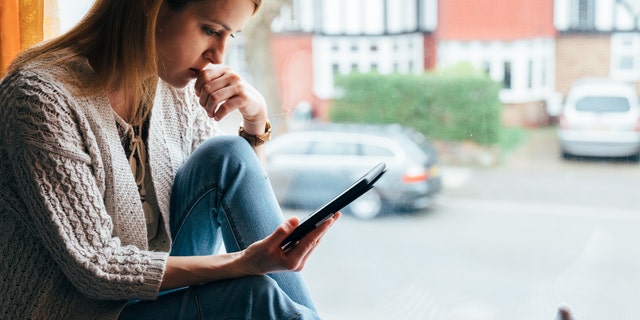Coronavirus caused spike in Google search for this symptom

Fox News Flash top headlines for October 1
Shortly after the World Health Organization (WHO) declared the novel coronavirus a global pandemic in March, Google searches for a certain mental health symptom skyrocketed, according to a new study.
Researchers at Tulane University, Loyola University and Central Michigan University used Google Trends to analyze “an extensive list of mental health-related terms” that people began to search for both before and after the WHO declared a global pandemic, finding that in the weeks after said declaration, there was a “major jump in searches related to anxiety, panic attacks and treatments for panic attacks, especially remote and self-care techniques,” per a press release from Tulane University.

“Our analyses from shortly after the pandemic declaration are the tip of the iceberg,” said lead study author Michael Hoerger, an assistant professor of psychology in the Tulane School of Science and Engineering, in a statement.
(iStock)
“Google Trends is a powerful publicly accessible website that allows individuals to examine longitudinal population-level variation in the relative frequency with which people use specific Google search terms. Data are updated in real-time and can be examined worldwide or by nation, state, metro region, or city. Although by no means a ‘window into the soul,’ people’s search terms reflect relatively uncensored desires for information and thus lack many of the biases of traditional self-report surveys,” the researchers said in the study.
“Google Trends analyses have been used to predict important societal outcomes, such as disease transmission, voting behavior, and key economic indicators, and it can also be used to forecast population mental health symptoms and needs.”
CORONAVIRUS ISOLATION KILLING THOUSANDS OF ALZHEIMER’S PATIENTS
Interestingly, the team did not find an increase in searches related to depression, loneliness, abuse, and suicidality. However, the researchers noted that this “may be that the onset of such changes will occur later, suggesting the need for continued surveillance on Google Trends.”
“Alternatively, the population may be more resilient than anticipated in rationalizing some elements of the pandemic (e.g., ‘it’s normal to feel lonely when self-isolating’). Moreover, population-level increases in stress in some life domains may be partially offset by reductions in stress from fewer close-proximity interactions with difficult bosses and coworkers.”
The findings were published recently in the journal "Psychological Trauma: Theory, Research, Practice, and Policy."
“Our analyses from shortly after the pandemic declaration are the tip of the iceberg,” said lead study author Michael Hoerger, an assistant professor of psychology in the Tulane School of Science and Engineering, in a statement.
MAJORITY OF AMERICANS SAY FLU SHOT IS BEST PREVENTATIVE MEASURE, BUT ONLY THIS MANY WILL GET IT
“Over time, we should begin to see a greater decline in societal mental health. This will likely include more depression, PTSD, community violence, suicide and complex bereavement. For each person that dies of COVID, approximately nine close family members are affected, and people will carry that grief for a long time.”
The researchers concluded in the study that their findings "suggest that Americans are already experiencing meaningful increases in anxiety symptoms and have a desire for the remote delivery of common anxiety treatment techniques."
"Continued monitoring of Google Trends may reveal changes in other mental health symptoms over the longer term that we could not yet detect,” they wrote. “These findings and continued surveillance can guide public mental health initiatives across multiple ecological levels that can mitigate the psychological toll of COVID-19.”
Source: Read Full Article


